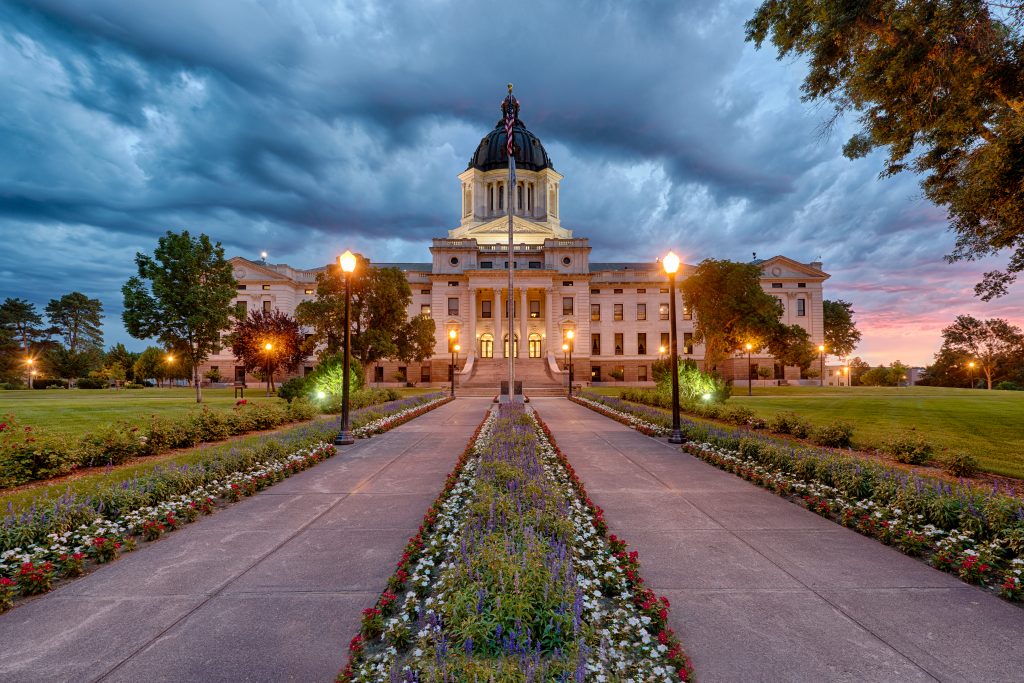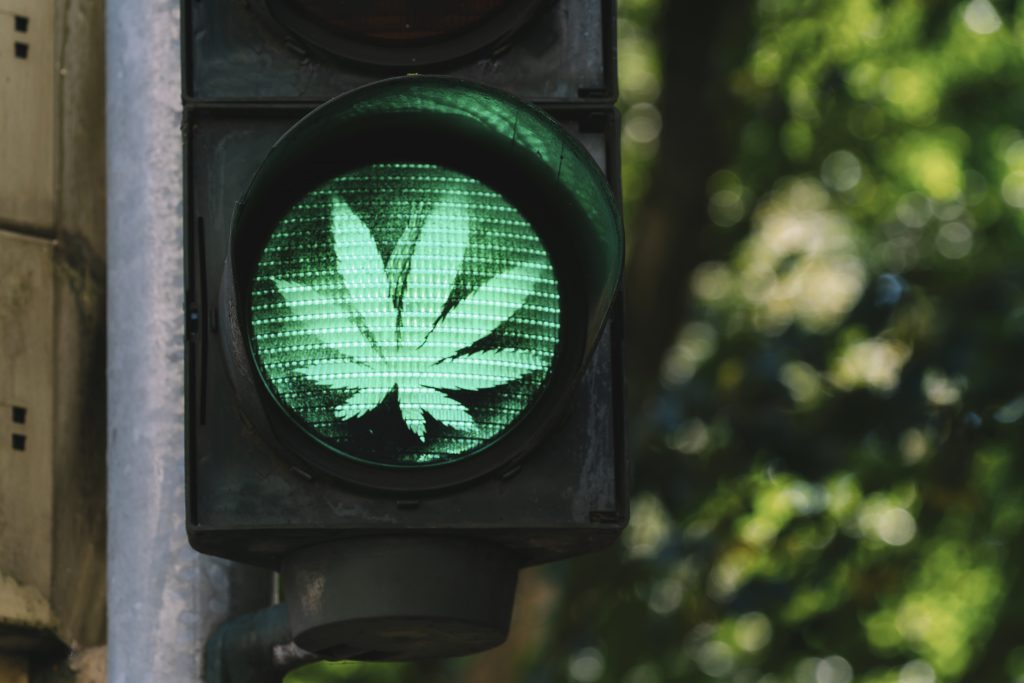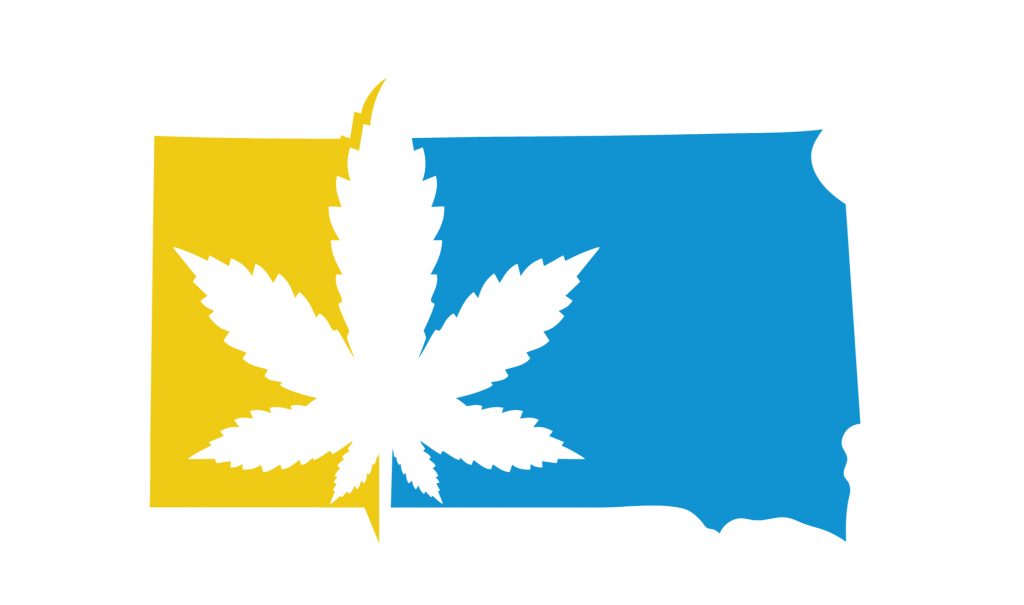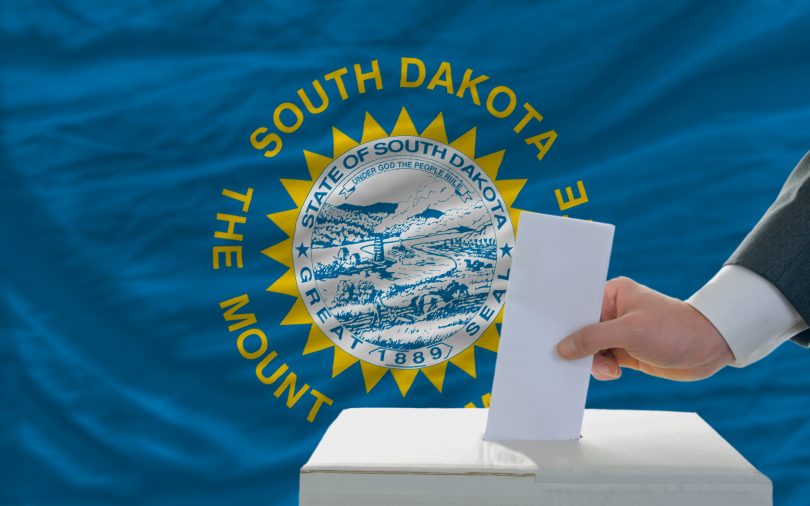Since Connecticut dropped in summer 2021, the main line has been that there are 18 legalized states for recreational cannabis use in the US. But there should be 19, and one of them should be South Dakota. The story hasn’t gotten as much press as it should have, as most seem not to realize that South Dakota actually passed a ballot measure, which legalized cannabis. Except it didn’t stick, because the government took it away.
How nuts is it that South Dakota legalized cannabis, just to have the government take it away? Not an indication of American democracy! Luckily, with the new cannabinoid market, even illegal states can have access to cannabis products, like delta-8 THC, THCV, and HHC. The holidays might be over, but the deals haven’t ended. Check out what we have on offer, and find what works best for you.Remember to subscribe to The THC Weekly Newsletter for deals on legal cannabis products, as well as all the latest news and industry stories. Also save big on Delta 8, Delta 9 THC, Delta-10 THC, THCO, THCV, THCP & HHC products by checking out our “Best-of” lists!
What’s the story with South Dakota and legalized cannabis?
On November 3rd of 2020, during the US national and state elections, South Dakota voters had the chance to cast their ballot on the question of whether cannabis should be legalized in South Dakota. Residents were able to vote on two measures, Measure 26, and Amendment A.
Measure 26 was an initiative to legalize medical marijuana and create a medical marijuana program. Amendment A was an initiative for legalized recreational cannabis in South Dakota, which also had additional requirements for the state to legalize medical cannabis, and to institute hemp sales by April 1, 2022. Recreational cannabis would have gone into effect by July 1st, 2021.
Measure 26 was officially certified on December 19th, 2019, by the South Dakota Secretary of State to be on the 2020 ballot. Amendment A also found itself on the ballot. And voters, indeed, were able to vote on both at once. Measure 26 passed with 70% of the vote, making it clear South Dakota most definitely wants a medical program. Amendment A passed as well with 54% of the voting population agreeing it was time for recreational cannabis to be legalized in the state.
This is interesting because it would have made South Dakota the very first state to legalize medical cannabis and recreational cannabis at the same time. And technically, it most certainly did, as per the ballot vote mentioned above. So, there should be 19 legalized states (Alaska, Arizona, California, Colorado, Connecticut, Illinois, Maine, Massachusetts, Michigan, Montana, New Jersey, New Mexico, New York, Nevada, Oregon, Washington, Vermont, Virginia, AND South Dakota) except there aren’t, there are only 18, because South Dakota had its recreational cannabis win taken away.
No democracy in South Dakota!!!
South Dakota’s voters made it clear they were in favor of both legalized medical cannabis, and recreational cannabis. By votes of 70% and 54% respectively, both measures were passed on the same day. Unfortunately, sometimes, even when the people are directly given the choice, governments don’t always respect this, and such is the case with South Dakota.
Nearly immediately after South Dakota voters passed Amendment A, on November 20th, 2020, two law enforcement officials: Sheriff Kevin Thom of Pennington County, and Superintendent Rick Miller of the South Dakota Highway Patrol, filed a lawsuit to invalidate Amendment A. The basis of the suit was that South Dakota has a law for single-subject ballot measures only, meaning a ballot measure cannot cover more than one item legally. Amendment A dealt with legalizing recreational cannabis, legalizing medical cannabis, and instituting hemp sales.
They also argued that it acts not as an amendment, but as a revision to an existing law, which requires a constitutional convention, rather than an amendment. As expected for a population that knowingly voted it in, there was a very negative response to the lawsuit.
But it gets stickier. This wasn’t two random law enforcement guys who just couldn’t stand the idea of weed being legalized. It was actually a conspiracy between them and leading co-conspirator Kristi Noem, the governor of South Dakota. This was made public on January 8th 2021, when she issued an executive order making it clear she was behind the whole thing, and had actually directed law enforcement to file the suit. Noem never wanted Amendment A, and had made that clear before the vote.
Though it seems like simply seeing this connection should have raised grave concerns about governor Noem’s position, and whether she should be allowed to keep it, it instead was upheld, and arguments were heard on the case on January 27th, 2021. The presiding judge in the case? Christina Klinger, appointed by none other than Governor Noem. By February 8th, 2021, Klinger ruled that the measure was unconstitutional in that it violated the single-subject rule, and that it was a revision that was needed anyway, not an amendment.

This ruling was appealed, bringing the case to the South Dakota Supreme Court. The ruling was upheld as unconstitutional on November 24th, 2021, even against arguments that invalidating it would go directly against the will of the people.
This means that even though the actual voters of the state made clear that the majority favored this legal change, (in a ballot approved at the time by the state), the government of South Dakota was not willing to accept this, and decided instead of updating laws accordingly (however it would have to be done), to go against the will of the voting public. This is a glaring example of the lack of real democracy in America, and its shocking that more has not been done to fix this situation for voters.
The campaign director for South Dakotans for Better Marijuana Laws, Matthew Schweich stated how the ruling is “a disrespectful assumption that South Dakota voters were intellectually incapable of understanding the initiative.” He went on to say,

“The court has rejected common sense and instead used a far-fetched legal theory to overturn a law passed by over 225,000 South Dakota voters based on no logical or evidentiary support.”
What else happened?
On January 27th 2021, the House of Representatives (possibly also at the behest of Noem) initiated HB 1100, which looked to stall the medical marijuana bill which was supposed to be delivered by July 2021. By using excuses like complication of marijuana laws, current Covid issues, and ongoing litigation over Amendment A, the House sought to delay Measure 26. It tried to change the date for medical cannabis to become effective from July 1st 2021, to January 2022.
On March 8th, 2021, the Senate then amended the bill to allow the possession of up to an ounce of marijuana (likely as a way of trying to recoup some voter love after dismissing a voter-approved law). The House didn’t agree to this, causing the need for a conference committee, where HB 1100 died. This meant that while no amount of cannabis was legalized to have, it also didn’t stall the medical program from starting on the intended day.

Marijuana advocates aren’t just going to stop, of course, and an incident like this makes clear what’s coming in the future. Besides the fact that Noem might have an issue keeping her seat come next election, there will likely be a new initiative at the next election, no doubt in line with legal standards to keep the same thing from happening again.
And its not just voters. Just as the Senate had tried to amend HB 1100 to include possession laws, plenty of the government gets the message that its time for change. Laws are also being considered in the legislature that would allow an adult-use market.
Conclusion
South Dakota represents the idea of legal loopholes at their worst. While we often use loopholes to get around unfair legislation, they can also be used to support unfair legislation, or even drown wanted legislation. Overall, the story is an embarrassment to the United States at large, and Noem is an embarrassment for South Dakota.
I expect that unless she takes a major 180º turn, and she might, that she’ll be evicted from office in 2023. Let’s hope! And let’s hope that legalized cannabis comes soon to South Dakota, as it did vote it in, after all.
Hello and welcome… Thanks for joining us at CBDtesters.co, your #1 web source for the most intriguing and thought-provoking cannabis and psychedelics-related news of today. Stop by daily to get your fix in this constantly-changing universe of legal drugs and industrial hemp, and remember to sign up for The THC Weekly Newsletter, to ensure you’re never late on getting a story.
Disclaimer: Hi, I’m a researcher and writer. I’m not a doctor, lawyer, or businessperson. All information in my articles is sourced and referenced, and all opinions stated are mine. I am not giving anyone advice, and though I am more than happy to discuss topics, should someone have a further question or concern, they should seek guidance from a relevant professional.







